Breast Reconstruction in Pune
Search and Compare the Best Clinics and Doctors at the Lowest Prices for Breast Reconstruction in Pune

Find the best clinics for Breast Reconstruction in Pune
With Medijump you can browse 4 facilities offering Breast Reconstruction procedures in Pune. The cheapest price available is $477 in Mumbai
Breast Reconstruction in India
Price: $ 477
Breast Reconstruction in Mumbai
Price: $ 477
Breast Reconstruction in Delhi
Price: $ 2,050
India offers the best prices Worldwide
Price: $ 477
From 168 verified reviews
Koraim Mohamed, 23 September 2020
Excellent hospital and provides very good services , Azhar from front desk was very helpful and cooperative
From 26 verified reviews
puja burande, 07 February 2020
Good clinic for skin n hai problem, Dr. Nitin Jain is good and treats well.
Dhanwantari's Chrysalis, located in Thite Nagar, Pune, India offers patients Breast Reconstruction procedures among its total of 37 available procedures, across 4 different specialties. Currently, there's no pricing information for Breast Reconstruction procedures at Dhanwantari's Chrysalis, as all prices are available on request only, whilst the national average price is approximately $3,400. There are many specialists available at the Hospital, with 4 in total, and they are accredited by IMA - Indian Medical Association
Dr. Viral Desai's CPLSS-Pune, located in Thite Nagar, Pune, India offers patients Breast Reconstruction procedures among its total of 35 available procedures, across 3 different specialties. Currently, there's no pricing information for Breast Reconstruction procedures at Dr. Viral Desai's CPLSS-Pune, as all prices are available on request only, whilst the national average price is approximately $3,400. All procedures and treatments are undertaken by just a small team of specialists, with 2 in total at the Hospital, and they are not accredited by any recognized accreditations institutes
Compare Before & After Photos of _procedure_photos.phpBreast Reconstruction
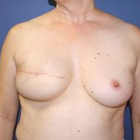
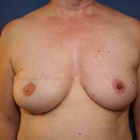
Front view
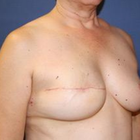
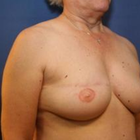
Half-side view
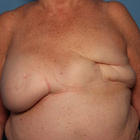

Front view
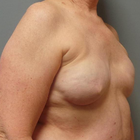
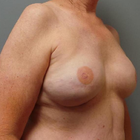
Half-side view
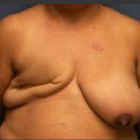
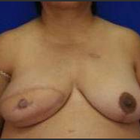
Front view
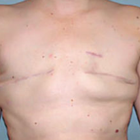
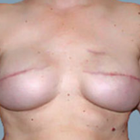
Front view
WHY US?
At Medijump, we're making medical easy. You can search, compare, discuss, and book your medical all in one place. We open the door to the best medical providers worldwide, saving you time and energy along the way, and it's all for FREE, no hidden fees, and no price markups guaranteed. So what are you waiting for?

Free

Best Price

Widest Selection

Risk-Free
What you need to know about Breast Reconstruction in Pune
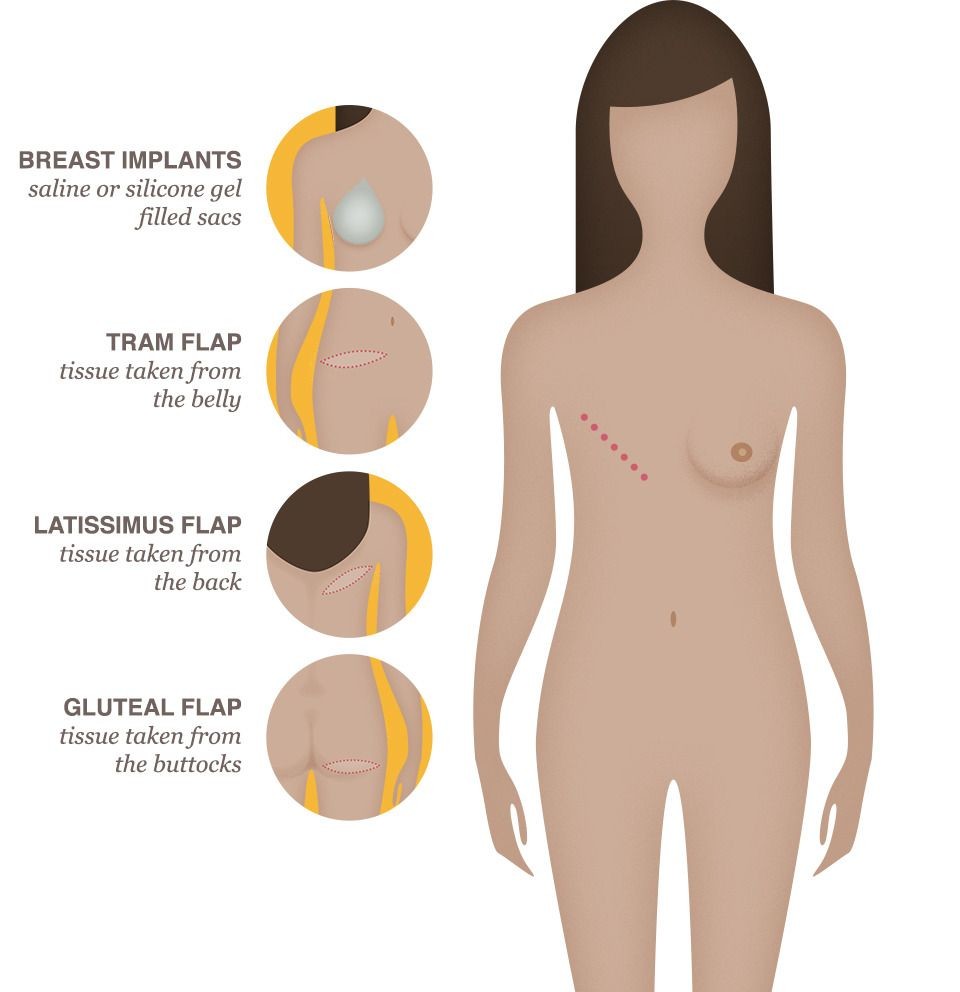
Breast reconstruction is a significant surgery undertaken to rejuvenate the physical form of a woman's chest after losing one or both breasts to cancer or another disease. In Pune, medical centres are well-equipped with top-tier talent in plastic surgery to facilitate this intricate procedure. Every woman's journey is different, and her treatment plan is personalized, considering her unique circumstances and needs.
It's heartening to know that breast cancer treatments like chemotherapy or radiation therapy aren't impeded by reconstruction. Moreover, this surgery doesn't spike the risk of cancer coming back. Undeniably, breast reconstruction is a major surgery with inherent risks, including chances of infection, complications with wound healing, and potential dilemmas related to implants.
What is the cost of Breast Reconstruction in Pune?
Undergoing surgery like Breast Reconstruction brings along a financial commitment. The expense varies extensively, depending on many factors like the complexity of the procedure, the medical professional performing the surgery, the hospital's facility, and the region, amongst others. Generally, the cost might range between $15,000 to $50,000, including multiple surgeries or intricate techniques within this estimate.
Thankfully, in many cases, insurance plans cover such surgical procedures, especially given mandates like the Women's Health and Cancer Rights Act of 1998 in the U.S. Still, out-of-pocket expenses associated with co-payment or deductibles can add up. It's recommended to navigate these aspects with your insurance provider and your chosen healthcare facility in Pune.
What does a Breast Reconstruction Procedure Involve?
Breast reconstruction generally happens in stages, starting with the most complex first, which may either occur at the same time as the mastectomy or later, based on the individual’s specific health conditions or treatment plan.
Two main techniques are employed in breast reconstruction. One is the use of an implant, saline, or silicone to recreate the breast shape. Two, autologous or flap reconstruction where tissue from the patient’s body like the abdomen or thigh is relocated to recreate the breast shape. The method selected is dependent on individual factors like the patient’s health, personal choice, cancer type, and stage.
After the primary surgery and post an adequate healing period, the surgeon performs a second procedure to recreate the nipple and areola. Later, to give it a natural look, the nipple-areola complex is tattooed. Remember that although it is a common procedure, complications might arise involving reaction to anaesthesia, bleeding, infection, poor healing or the need for further interventions.
How Long Should I Stay in Pune for a Breast Reconstruction Procedure?
Post-breast reconstruction surgery, patients typically stay in the hospital for two to five days. However, if the reconstruction was done immediately after the mastectomy, the stay could extend from three to six days.
Overall, a patient should expect to remain in Pune for approximately two weeks post-surgery. This allows enough time for necessary follow-ups and to address any complications, if they arise. As with any major surgical procedure, do not hasten the healing process.
What's the Recovery Time for Breast Reconstruction Procedures in Pune?
The recovery timeframe for breast reconstruction procedures in Pune varies from patient to patient. Generally, for implant-based procedures, patients may take about four to six weeks to recuperate before they return to normal routines. For more complex autologous techniques, particularly those using abdominal tissue, patients might require six to eight weeks for recovery.
Recovering patients need to temper their activities during this period. Avoid lifting heavy objects and defer strenuous exercise until your physician gives a clear signal. Medical assistance should be promptly sought if any discomforting symptoms like chronic pain, redness or swelling surface.
What's the Success Rate of Breast Reconstruction Procedures in Pune?
Medical success cannot just be measured in terms of complication-free postoperative progress or longevity of implants used in breast reconstruction. Patient satisfaction with their surgery, their psychological well-being following the operation, their perception of body image, and their quality of life post-surgery are equally important factors to consider. Studies indicate that between 85% to 90% of women who have undergone breast reconstruction are satisfied with the long-term results.
In Pune, dedicated hospitals and healthcare facilities strive to offer high-quality treatment, ensuring the best possible surgical outcomes using progressive technology and experienced professionals. Still, everyone's response to surgery varies, and outcomes depend on factors such as overall health, age, body type, and compliance with surgical advice.
Are there Alternatives to Breast Reconstruction Procedures in Pune?
Indeed, there are alternatives to breast reconstruction in Pune. The journey of every woman is unique and how she chooses to deal with the loss of a breast, or both, is a highly personal decision. Alternatives include:
- Breast Prostheses or Forms: They are silicone forms that imitate the appearance and feel of natural breast tissue. They come in diverse sizes, shapes and colours to closely match the woman's skin tone.
- Flat Closure: In this method, the surgeons sew up the chest wound smoothly, without constructing a breast mound. This option appeals to women who choose not to have more surgeries or body implants.
- Opting not to undergo reconstruction at all, also termed as "going flat: This method exhibits the woman's choice to live comfortably with her new body shape without artificial substitutes or further surgeries. It is a fully personal decision deserving respect and support.
Each of these options has pros and cons, and the choice depends on the woman’s personal preference, health status, lifestyle, and perception of her body. Regardless of the choice, it’s important to regularly monitor breast health and engage in practices that promote overall wellness.
What Should You Expect Before and After the Breast Reconstruction Procedure?
Before the surgery, comprehensive discussions with the surgeon will take place to understand treatment objectives, outcomes, and possible complications. Preoperative tests, lifestyle modifications, and nutritional advice may form a part of the preparatory process.
Postoperative care is equally important: discomfort, swelling, and bruising are normal and subside over time. Pain management strategies will be provided to help you manage discomfort effectively. Your surgeon will provide personalised guidance on caring for your surgical site, usage of medications, and physical activities.
What sort of Aftercare is Required for Breast Reconstruction Procedures in Pune?
The following points should be considered post-operation:
- Follow the instructions given by your doctor and take your medicines as and when prescribed.
- Consult a nutritionist for a diet plan. A healthy diet helps you recover faster.
- Do not wear a padded or underwire bra until allowed by your doctor.
- Use surgical bras in the early few days after the surgery.
- Avoid excessive unnecessary movement of your breasts.
- Do not lift heavy objects and children - it could stretch on your stitches.
- Change your bandage whenever it gets dirty. Germs can cause infection.
- Do not take a bath when the bandages are still intact. A wet bandage can also be the cause of infection.
- Abstain from sexual activity for at least 6 weeks.
- Take rest - give yourself time to recover.
How Do I Prevent Cancer from Recurring?
Preventing cancer recurrence largely revolves around a balanced, healthy lifestyle coupled with regular medical check-ups. Regular exercise, maintaining a healthy weight, and eating nutritiously can contribute to cancer prevention. Smoke cessation and limiting exposure to secondhand smoke are crucial for both prevention and postoperative recovery.
Regular breast self-examinations, as well as mammograms and follow-up visits, are critical for early detection of any recurrence. Stress management techniques like yoga, meditation, and spending time in nature can also play an essential role in overall health.
Your medical team in Pune is there to support you, offering advice tailored to your individual health status and medical history. Remember, proactive health checks are key to maintaining overall health and preventing the recurrence of diseases like cancer.
What is the ideal time to have Breast Reconstruction surgery after a Mastectomy in Pune?
The decision regarding when to have Breast Reconstruction following a Mastectomy in Pune is largely based on the individual's health status, treatment plan, personal preferences, and discussions with the oncology team. Breast reconstruction can be done at the time of mastectomy (immediate reconstruction) or at a later date (delayed reconstruction). Immediate reconstruction might offer psychological benefits and less overall surgery since both procedures are done together. Yet, if additional treatments such as radiation therapy are required post-mastectomy, opting for delayed reconstruction could be advisable to avoid risks posed by radiation to the new construct.
Remember that deciding on the timing of breast reconstruction is a personal choice and should be made in consultation with your healthcare providers. They can provide specific guidance based on your health condition and treatment plan.
How Will Breast Reconstruction in Pune Impact My Routine Mammograms and Breast Cancer Detection?
Breast reconstruction surgery may impact the way routine breast cancer screenings are conducted. After a mastectomy with or without reconstruction, women usually don't need routine screening mammograms on the treated side since all breast tissue has been removed. However, they would need routine mammograms for the untreated breasts.
If you've had reconstruction using your own body tissue, your surgeon or oncologist will guide you on whether or not you'll require mammograms on the reconstructed breast. Remember, mammograms can still be performed on reconstructed breasts, and self-breast exams should be a regular part of your health routine.
Whilst the information presented here has been accurately sourced and verified by a medical professional for its accuracy, it is still advised to consult with your doctor before pursuing a medical treatment at one of the listed medical providers
No Time?
Tell us what you're looking for and we'll reachout to the top clinics all at once
Enquire Now

Popular Procedures in Pune
Prices Start From $497

Prices Start From $208

Prices Start From $834

Prices Start From $500

Prices Start From $93

Prices Start From $85

Recommended Medical Centers in Pune for Breast Reconstruction

- Interpreter services
- Translation service
- Religious facilities
- Medical records transfer
- Medical travel insurance
- Health insurance coordination
- TV in the room
- Safe in the room
- Phone in the room
- Private rooms for patients available

- Interpreter services
- Translation service
- Religious facilities
- Medical records transfer
- Medical travel insurance
- Health insurance coordination
- TV in the room
- Safe in the room
- Phone in the room
- Private rooms for patients available

- Interpreter services
- Translation service
- Religious facilities
- Medical records transfer
- Medical travel insurance
- Health insurance coordination
- TV in the room
- Safe in the room
- Phone in the room
- Private rooms for patients available

- Interpreter services
- Translation service
- Religious facilities
- Medical records transfer
- Medical travel insurance
- Health insurance coordination
- TV in the room
- Safe in the room
- Phone in the room
- Private rooms for patients available

- Interpreter services
- Translation service
- Religious facilities
- Medical records transfer
- Medical travel insurance
- Health insurance coordination
- TV in the room
- Safe in the room
- Phone in the room
- Private rooms for patients available

- Interpreter services
- Translation service
- Religious facilities
- Medical records transfer
- Medical travel insurance
- Health insurance coordination
- TV in the room
- Safe in the room
- Phone in the room
- Private rooms for patients available

- Interpreter services
- Translation service
- Religious facilities
- Medical records transfer
- Medical travel insurance
- Health insurance coordination
- TV in the room
- Safe in the room
- Phone in the room
- Private rooms for patients available

- Interpreter services
- Translation service
- Religious facilities
- Medical records transfer
- Medical travel insurance
- Health insurance coordination
- TV in the room
- Safe in the room
- Phone in the room
- Private rooms for patients available

- Interpreter services
- Translation service
- Religious facilities
- Medical records transfer
- Medical travel insurance
- Health insurance coordination
- TV in the room
- Safe in the room
- Phone in the room
- Private rooms for patients available

- Interpreter services
- Translation service
- Religious facilities
- Medical records transfer
- Medical travel insurance
- Health insurance coordination
- TV in the room
- Safe in the room
- Phone in the room
- Private rooms for patients available
Breast Reconstruction in and around Pune
About Pune
Pune is a city in the Indian state of Maharashtra. With an estimated population of 3.13 million, it is the ninth most populous city in the country. Like many other cities in India, this city is a perfect blend of ancient and modern. It’s a thriving metropolis that still retains a few of its old buildings and residential areas. The city is famous for the Osho International Meditation Resort, an ashram founded by the late guru Bhagwan Shree Rajneesh. There is a lot to see and do in this city that cannot be packed into a short weekend trip. Recently, many tourists visit the city for its medical treatments.
Pune’s is in sync with India’s fast-growing medical tourism. Domestic and foreign patients prefer the city to get the best healthcare. Medical cost is relatively cheaper here than in any other medical tourism country. The government is expanding this sector rapidly to drive a strong growth rate. With high-quality hospitals, infrastructure, and well-trained medical professionals, the city has a lot of contribution in helping India to be the number one medical destination in the world.
A wide range of medical treatments is available in Pune, from Breast Augmentation, Tummy Tuck, to Otoplasty. Columbia Asia Hospital Pune, Deenanath Mangeshkar Hospital and Research Center, and Apollo Jehangir Hospital are some of the best hospitals with the highest ratings.
Popular Areas in Pune
Pune has a lively nightlife and vibrant atmosphere due to its large student population. It’s sometimes called “Oxford of the East” because there are numerous colleges and institutes here. It is also well known for its hill forts that offer panoramic views, fantastic restaurants, and good museums. The city has a magnificent history of nearly 1600 years.
- Shaniwar Wada is a historical fortification situated at the very heart of Pune. Built in 1732, it was originally a seven-storied capital building of the Peshwas of the Maratha Empire. It’s an amazing place for history buffs. Tourists can enjoy some live shows in the evening.
- Mahadji Shinde Chhatri has an extremely beautiful architecture that reflects the style used in Rajasthan. It is a memorial dedicated to the great soldier, Mahadji Shinde who served as the commander-in-chief of the Maratha army under the Peshwas for twenty years. The memorial consists of a temple dedicated to Lord Shiva.
- Pataleshwar Caves is a religious shrine that dates back to 700 – 800 AD. Located on Jungli Maharaj Road, the shrine has grand statues of Nandi, Sita, Ram, Lakshman, Lakshmi, Ganesh, and a big Shivalingam.
- Parvati Hill is the highest point in Pune. It offers a beautiful panoramic view of the city and is especially breathtaking during sunrise and sunset. The hill is home to four temples.
- Osho International Meditation Resort draws thousands of sannyasins since 1990. It is the perfect place to get some peace of mind. With various meditation techniques, the resort is suitable for those who want to indulge in some luxurious meditation. The resort has a swimming pool, sauna, spa, and guesthouse.
Weather and Climate in Pune
March to June is summer and the temperature can get really high during this season, with the highest temperature ever recorded is 43.3 °C (109.9 °F). The end of May usually experiences dusty winds. Humidity is also very high.
Monsoon or rainy season starts in June and last until October. There are moderate rainfall and the average temperature ranging from 22 °C to 28 °C (72 to 82 °F). July is the wettest month of the year with occasional Hailstorms.
Winter has the most pleasant weather. It starts from December to February. The average daytime temperature is around 26 °C (79 °F) and night temperature can drop to 5 °C to 6 °C (41 to 43 °F). Due to the pollution, the city’s winter temperature has warmed up by 6 degrees.
Getting Around in Pune
Pune International Airport is still the main airport in the city until the completion of the proposed Chattrapati Sambhaji International Airport. This airport has one terminal that serves both domestic and international flights. Major airlines such as Air India and budget airlines such as AirAsia India, GoAir, and IndiGo operate flights from this airport. The international flights connect the city with Abu Dhabi, Dubai, Sharjah, and Frankfurt.
To get to the city center from Pune International Airport, taxis, buses, auto-rickshaws, and car rentals are available. There are four bus lines that reach the city center: 24B, 102, 158 and 158A. A bus ride usually takes 45 minutes. Taxis are relatively affordable, there are pre-paid and metered taxis out on the arrivals area.
Tourists can use the PMPL City bus to get around Pune. Almost all parts of the city can be reached by the buses, but be aware that it can be very crowded and smoke-belching. The fare ranges from 5 INR to 22 INR. Auto-rickshaws are widely available within the city; there are metered and pre-paid auto-rickshaws. If you choose the metered one, always make sure that the drivers use the meter before getting in. Taxis are another nice option; the prices range between 7 INR/km to 20 INR/km. online hailing apps are also available. There are many car rentals and tourists can drive around the city, but there is a lot of traffic and bad driving in Pune.
Tourist Visas in Pune
All visitors, except citizens of Nepal and Bhutan, need to obtain and apply for a visa to enter India. Citizens of South Korea and Japan can apply for a visa on arrival. E-Visa is available for 150 nationalities. Tourists coming for medical treatment can apply for the medical attendant e-visa.
Passport must be valid for at least 180 days after your entry to India and should have at least two blank pages.
Additional Information
- Local Currency: Indian rupee (INR) is the local currency. 1 USD converts to 70 INR.
- Money & Payments: ATMs are widely available in Pune. Tourists can find many exchange services around the city. Credit and debit cards are accepted at several restaurants, hotels, and shops. It is advisable to always carry cash. Tipping is not mandatory; you can always tip 10 to 15 percent of the billed amount in restaurants.
- Local Language: Marathi is the official language of Pune. Most people also speak Hindi. English is widely spoken especially in tourist areas.
- Local Culture and Religion: Most of the population follows Hinduism. Other religions such as Islam, Buddhism, Jainism, Christianity, and Zoroastrianism have significant presences in the city.
- Public Holidays: Pune celebrates major religious holidays. The city also celebrates several annual festivals such as Pune Festival, The Eateries Food Fest, and Pune International Film Festival.
Popular Searches
- Plastic Surgery in Thailand
- Dental Implants in Thailand
- Hair Transplant in Thailand
- Breast Augmentation Thailand
- Gastric Sleeve in Thailand
- Gender Reassignment Surgery in Thailand
- Laser Hair Removal in Bangkok
- Botox in Bangkok
- Dermatology in Bangkok
- Breast Augmentation in Bangkok
- Coolsculpting in Bangkok
- Veneers in Turkey
- Hair Transplant in Turkey
- Rhinoplasty in Turkey
- Stem Cell Therapy in Mexico
- Rhinoplasty in Mexico
- Liposuction in Mexico
- Coolsculpting in Tijuana
- Rhinoplasty in Korea
- Scar Removal in Korea
- Gastric Sleeve in Turkey
- Bone Marrow Transplant in India
- Invisalign in Malaysia
- Plastic Surgery in the Dominican Republic
- Tummy Tuck in the Dominican Republic
- Plastic and Cosmetic Surgery in Poland
- Rhinoplasty in Poland
- Hair Implant in Poland
- Dental Implants in Poland
- IVF in Turkey



